 Petzlover
Petzlover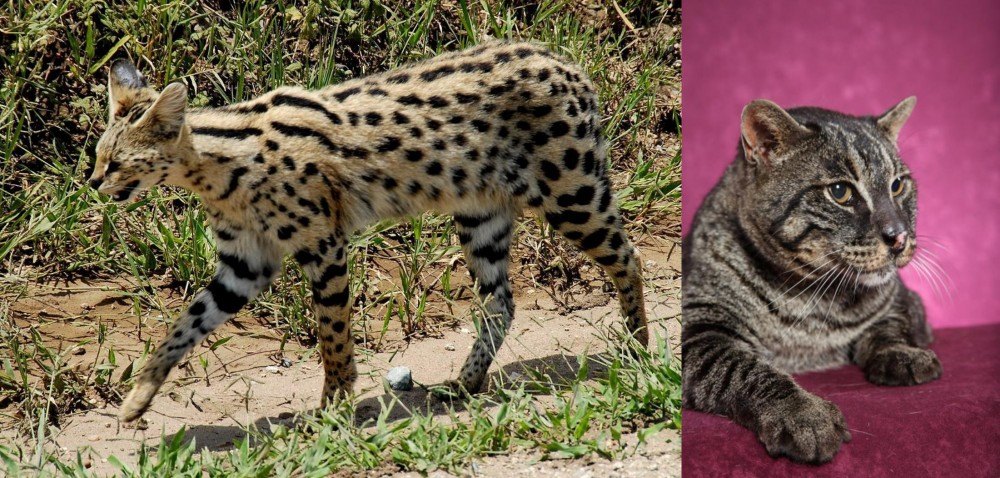 African Serval is originated from South Africa but Machbagral is originated from United States. African Serval may weigh 11 kg / 25 pounds more than Machbagral. African Serval may live 5 years more than Machbagral. Both African Serval and Machbagral has same litter size. Both African Serval and Machbagral requires Low Maintenance.
African Serval is originated from South Africa but Machbagral is originated from United States. African Serval may weigh 11 kg / 25 pounds more than Machbagral. African Serval may live 5 years more than Machbagral. Both African Serval and Machbagral has same litter size. Both African Serval and Machbagral requires Low Maintenance.
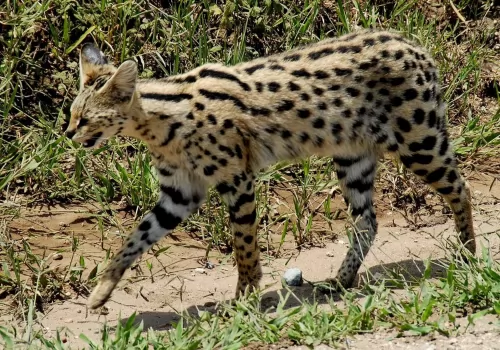 The African Serval is a wild cat that hails from Africa. You’ll see them on Africa’s savannas where there is tall grass and reeds, preferably near water.
The African Serval is a wild cat that hails from Africa. You’ll see them on Africa’s savannas where there is tall grass and reeds, preferably near water.
If you want to own a serval cat, you have to check whether you require licenses and permits as they are particularly difficult to rehome once you have owned one. Humans have kept them since ancient times, but they are not domesticated cats as such.
Breeding servals arrived in the United States many decades ago. Breeders have also crossed serval cats with domestic cats to produce hybrids, one of which is the Savannah cat.
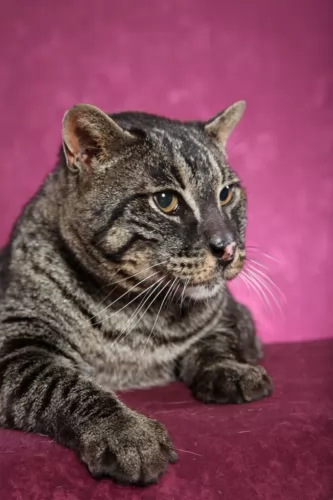 This is an experimental cat breed – a wildcat hybrid. It seems as though this cat was also developed in the United States like many of the other hybrid cats.
This is an experimental cat breed – a wildcat hybrid. It seems as though this cat was also developed in the United States like many of the other hybrid cats.
Also known as Bagral, Tthe Machbagral came about by crossing the wild Fishing cat – also known as the Asian Fishing cat and a Bengal cat or melanistic tabby spotted domestic cat.
Once again, humans wanted a cat that would look like a wild cat but that could be domesticated.
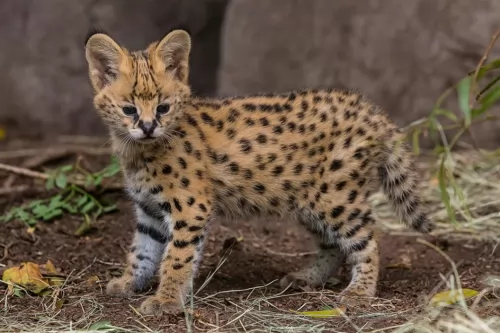 The Serval is a medium to large-sized cat that stands at between 54–62 cm in height and weighs in the region of 9–18 kg.
The Serval is a medium to large-sized cat that stands at between 54–62 cm in height and weighs in the region of 9–18 kg.
Some people think its a cat that looks similar to a Cheetah and this is because it also has a small head. It is known for its large ears which are black at the back with a large white dot. The attractively patterned coat is both spotted and striped with black against a golden/tawny shade.
These wild cats make a number of different noises - high pitched cries to growls, spitting sounds and purring. Another well-known feature with the cat is its particularly long legs. The tail has some black rings and it is black-tipped. The eyes of the Serval are a brown/greeny color.
The Serval cats will only come together for mating and then they resume their solitary lives. Gestation lasts for roughly 73 days after which up to 6 kittens can be born. In captivity, a Serval can live to be about 20 years of age.
The Serval is an active cat night and day. They are solitary animals not known for strong social interactions with humans but they can be playful with the few humans he gets to know.
People need to always know that owning a wild pet like this comes with risks. Not only that, a Serval wants to mark its territory and while you may provide a litter box, it's not to say he will use it.
They are able to bond with humans to some extent, more so if they were hand-fed from early on. They bond with one person and can form an affectionate relationship with that one person.
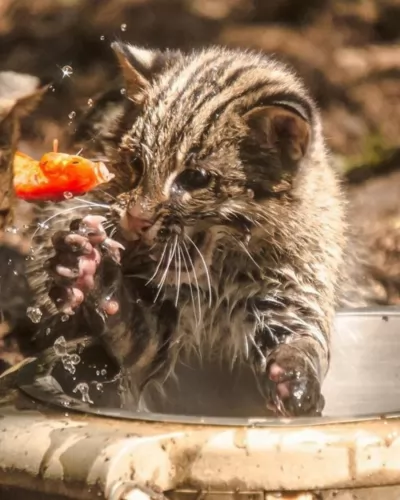 The Machbaral is a medium to large-sized cat and can weigh up to 7kg. It is described as a stocky cat. The head is large with fairly small ears. The fur of the Machbagral will be dense and medium length with a thick fluffy tail. The color is black with lighter tips.
The Machbaral is a medium to large-sized cat and can weigh up to 7kg. It is described as a stocky cat. The head is large with fairly small ears. The fur of the Machbagral will be dense and medium length with a thick fluffy tail. The color is black with lighter tips.
The Machbagral cat is very friendly and intelligent and like so many hybrid cats he loves playing in water. If you have an outside cage for him, it should have a small pool.
He is a cat that loves his human family and behaves much like a dog. You can teach this cat to walk on a leash.
You need to bear in mind that because of the wildness in the Machbagral, there will no doubt be some aggression. They can also be quite solitary by nature and may never adjust to being in a social setting. These cats are also not 100% predictable.
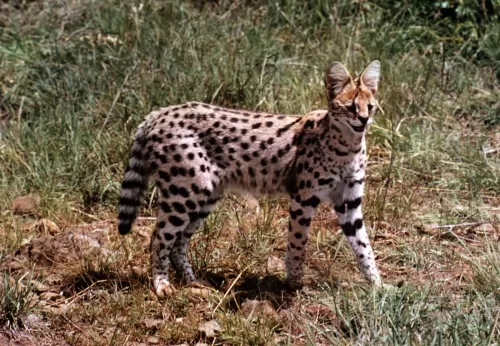 The African Serval is a wild animal and should be left in the wild.
The African Serval is a wild animal and should be left in the wild.
However, if you do decide to bring one into your home as a pet, they aren’t recommended for homes with young children or for a first-time pet owner.
Their play is rough and they like to use their teeth and claws during play. If the child gets hurt, then in typical unfair human fashion, the Serval is the one who suffers. They are capable of making good pets though but it is not recommended.
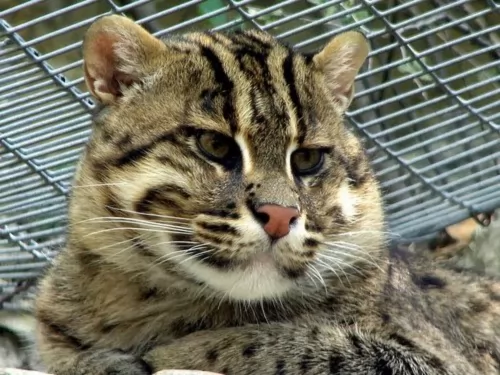 The Machbagral, just like some of the other hybrid cats there are, can be wonderful to own. But sadly these hybrids should be discouraged as pets.
The Machbagral, just like some of the other hybrid cats there are, can be wonderful to own. But sadly these hybrids should be discouraged as pets.
They can make wonderful pets no doubt, but there is always that unpredictable behavior with them.
There are so many cats in shelters today, many of them are hybrids because people had no idea that the wild side of the hybrid such as the Machbagral is always lurking there, ready to come out.
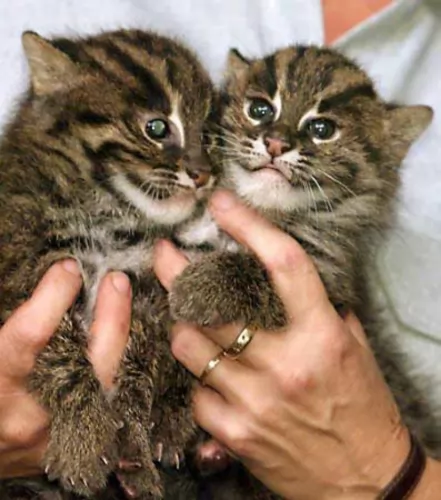 You need to know that interbreeding wild cats with domestic cats still has wildness in a cat.
You need to know that interbreeding wild cats with domestic cats still has wildness in a cat.
The truth is, there are behavioral complaints from owners of these hybrid cats.
No matter how wonderful the Machbagral seems to be as a pet, at some time or other he will display aggression and also failure to use a litter box.
These hybrids usually mark their territory by urination and spraying and often can’t learn to use a litter box. Unlike with a proper domestic cat, neutering or spaying a hybrid cat won’t really change their behavior of urinating inside your house.
Also, because hybrid cats such as the Machbagral are unnatural breeding, there can be health issues. One of the more common illnesses among hybrid cats include digestive issues, of which IBD is one. This is a bowel disease and it can cause chronic diarrhea with your cat.
Another medical issue is Hypertrophic Cardiomyopathy. Also, another concern is that while regular cat vaccines protect your regular cat from some deadly cat diseases, they may not be approved for use in hybrid cats, and if they are approved, they may not be effective.
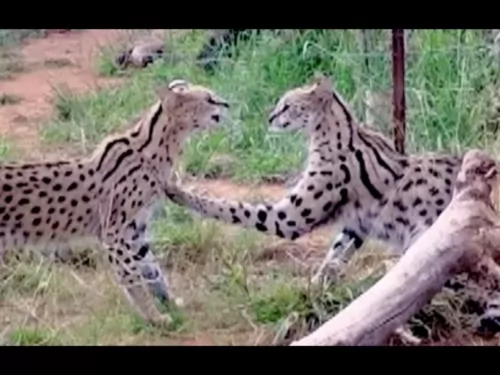 The Serval is a wild cat so in the wilds it eats prey such as frogs, birds and reptiles. They are known for leaping high into the air to catch prey but they will also burrow into holes to get prey out.
The Serval is a wild cat so in the wilds it eats prey such as frogs, birds and reptiles. They are known for leaping high into the air to catch prey but they will also burrow into holes to get prey out.
You should try to provide your Serval pet with some whole prey. Do research on the food of Servals because you will need to offer your wild pet a feline supplement. There are also formulated pelleted food, but this shouldn’t form the bulk of his food but rather be a supplement to his meats. Choose a variety of meats such as chicken, mice, turkey, beef, duck as well as rabbits and birds.
If you keep a serval, it is imperative that it has large outdoor areas to roam in. They’re nocturnal animals, so they become more active at night. They’re used to living near streams in the wild so some kind of pool will be required for him, possibly even a fish pond where he can catch his own fish.
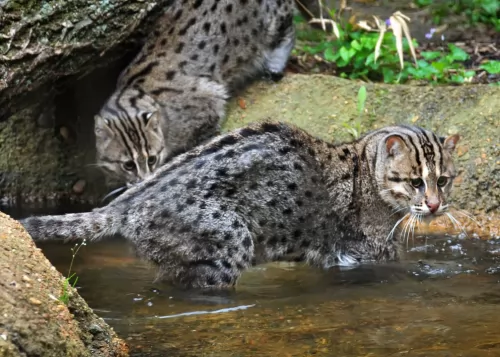 Most cat owners with basic cat care knowledge will be able to take care of their Machbagral. You could say that there is a little bit more specialized care with these hybrid cats as they will require an outside cage as they are cats with a wild side.
Most cat owners with basic cat care knowledge will be able to take care of their Machbagral. You could say that there is a little bit more specialized care with these hybrid cats as they will require an outside cage as they are cats with a wild side.
Feline hybrids are larger than domestic cats and can exhibit a wild temperament, so you have to bear in mind they require careful and different handling to a regular cat.
A diet of commercial pet food may not be sufficient for a hybrid such as the Machbagral and your vet may well be able to advise you on the feeding requirments of these hybrids.
Since cats are carnivorous, they will need to be fed food that is high in protein. You need to understand how to read labels on commercially manufactured cat foods and to avoid those that have more carbohydrates in them and less meat. Feeding you cat such a diet will ensure health issues later on.
Provide your pet with all the things needed to make him content as can be. Food and water bowls, paddling pool, toys, sleeping area. You want to surely invest in collar and tag as these cats often try to get away.
You want to make sure you have an outdoor enclosure for your Machbagral. These hybrids are indoor- and outdoor cats. Because they often don’t learn to use a litter box they need to be outside in an enclosure for some of the time. They are certainly not indoor cats.